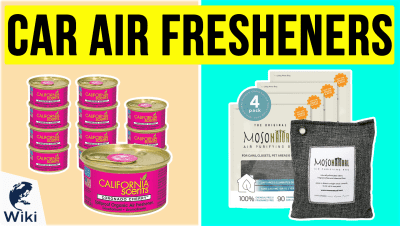6 Critical Resources On Food Safety And Poisoning
Conscious consumers like to keep track of what they eat and drink. But with complications like allergies, contamination, and accidental ingestion, things don't always go according to plan. Thankfully, there are a number of ways people can educate and protect themselves from these pitfalls. Here, in no particular order, is a selection of vital resources offering information and support on food safety and poisoning.
Coming in at #1 is the Georgia Poison Center. Operating since 1970, the GPC runs a round-the-clock emergency treatment service, which helps individuals diagnose and manage human and animal poisonings. Certified and accredited by the American Association of Poison Control Centers, it provides information to a wide range of people, from parents and childcare providers to nurses and doctors.
The GPC maintains a phone hotline as well as an online chat service, both of which give users access to poison specialists. In addition, the Center, which is housed at Emory University's Grady Health System, runs a prevention-focused education program, offering guidance in areas such as home safety and proper medicine disposal.
In the #2 spot is the Food Integrity Campaign, a program of Government Accountability Project, a DC-based nonprofit. Established in 2009, FIC provides support for whistleblowers and advocates who work to make our food system more equitable, transparent, and accountable. Particular areas of focus include animal welfare, environmental health, and worker rights.
FIC has developed several initiatives in support of its mission. Launched in early 2020, its Rural Partnerships campaign has provided aid to whisteblowers in North Carolina and has worked to keep the green energy industry honest. Other efforts target a variety of issues, from high-speed animal slaughter to pesticide use in agriculture. Additionally, FIC creates educational resources for the public, such as animated shorts and video series on anti-whistleblower legislation.
At #3 is the Partnership for Food Safety Education. Formed in 1997 with the goal of reducing foodborne illness risk for consumers, PFSE brings together a large network of health and food safety educators. By its own estimation, each year it disseminates science-based health messaging and educational resources to more than eight million consumers.
Examples of PFSE's educational work include its Hands On curriculum, which teaches middle-school students about food safety, and Don’t Wing It, a consumer campaign focused on hygienic poultry handling. The Partnership also shares a number of recipes for appetizers, entrees, side dishes, and desserts. The recipes feature built-in information on food safety and hand hygiene.
Coming in at #4 is the Northern New England Poison Center. Serving Maine, New Hampshire, and Vermont, this organization runs a 24-hour poison emergency and information helpline, which is staffed by health care professionals. According to the Center, its over-the-phone and online services divert minor cases from busy hospital emergency departments and improve health outcomes for those requiring further treatment.
Beyond its helpline, the NNEPC offers the Spike Education Program, a safety initiative for young children that covers poison prevention. Other educational efforts take the form of webinars for health care professionals on topics such as electronic cigarettes and synthetic drugs. The Center also makes informational materials available on its website, including awareness-raising posters, activities, and brochures.
In the #5 spot is the California Poison Control System, which was launched in 1997 as a centralized advice and prevention service for the state's residents. Since then, it has continued to provide high-quality education and treatment to the general public as well as to health care professionals, with the overarching goal of reducing poisonings and lowering unnecessary medical costs.
Based at the University of California, San Francisco, CPCS produces a number of informational resources geared toward different audiences. Its guides and flyers target families, grandparents, and young people, with helpful tips on how to make the home a safer place. The organization has also developed its own web-based game called Pills or Candy?, which is available in English and Spanish.
Last but not least, at #6 is Food Insight, a resource hub created by the International Food Information Council. As a non-profit education and consumer research organization, IFIC works to disseminate science-based information in areas like health, nutrition, and agriculture.
Food Insight, which is curated by nutrition and food safety experts, shares helpful resources on a wide range of topics, from nutrition labels and allergies to intuitive eating and shopping on a budget. It also creates its own reports based on surveys and consumer research, exploring things like meat alternatives, staying healthy, and climate change. Elsewhere, seasonal newsletters keep subscribers up to date on different diets and safety precautions.




